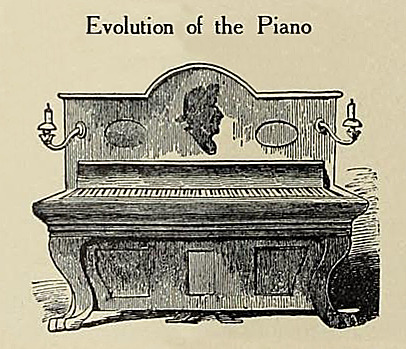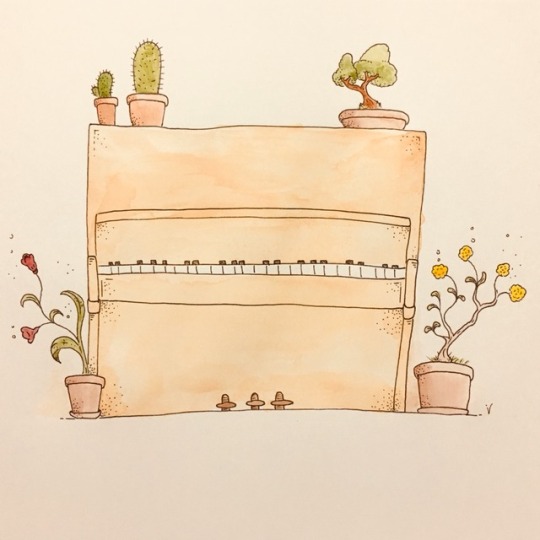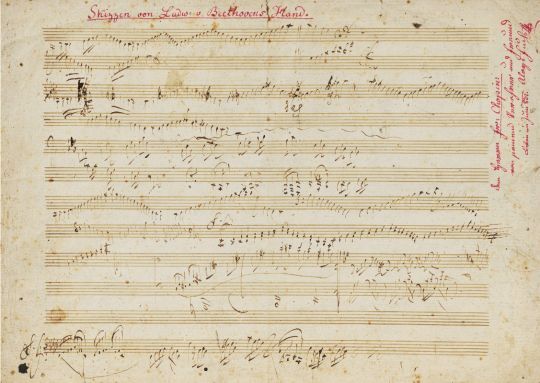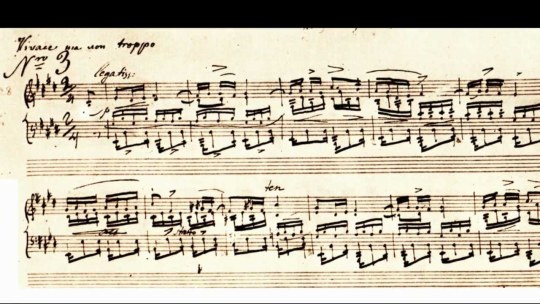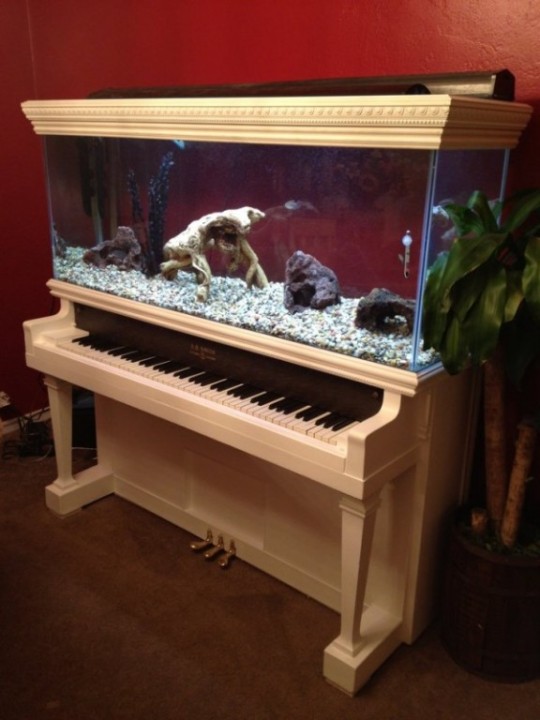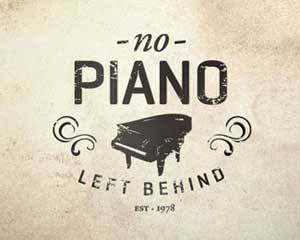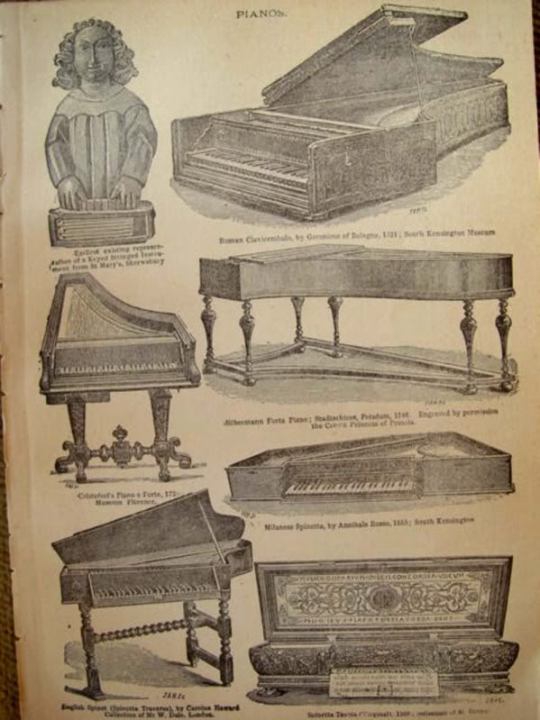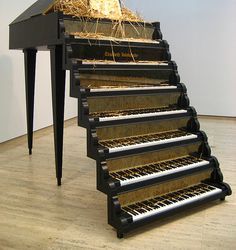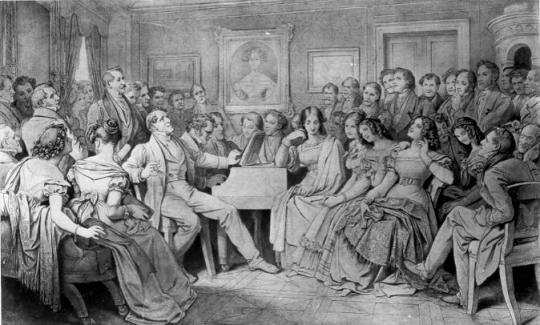Text
Why Do Piano Lessons Help with Playing Other Instruments?
Lots of parents have often told me that their child has learned guitar/bass/flute/clarinet....etc. quickly because they took piano lessons.
Why?
What are the transferable skills from piano?
Music Theory
Learning any instrument requires at least some basic reading of notes, rhythm, dynamics, and details, depending on the instrument. To know what certain symbols represent and what type of sound is suggested.
Some instruments only requires reading from one staff! While piano requires reading both the treble and bass, this gives a solid overview of the grand staff to set up the musical brain to learn any instrument.
Finger Control
Most instruments require the use of fingers; learning the piano allows the the student to practice finger control and learning how to use each finger independently.
Ear Training
Playing the piano also allows the student to develop their ear, in terms of recognizing the movement of notes (moving up vs moving down), to differentiate basic intervalic movement in sound (step, skip, leap, etc.), sounds in different register (higher, lower), and basic rhythmic patterns.
Rhythm
A main concept of music theory, and integrated into ear training, rhythm is a fundamental of music. To know that certain symbols mean to hold a sound longer, to play it as quick as possible, and also what symbols represent silence and how long silences should be.
--------------------------
Teachers of various instruments have their own age restriction guidelines because even if a child shows eagerness in learning a certain instrument, holding certain instruments with proper posture may present an issue, let alone reaching tiny fingers to cover certain keys.
Starting with piano lessons at a young age does wonders for their development and growth in many ways, to prepare for school, and also to allow a child to experience music and the world of symbolic representation.
Make sure to find a qualified teacher who fits your child's personality, and is open to trying new activities to engage your child. There is nothing worse than a negative experience stretched over years of lessons!
Happy playing! :)
1 note
·
View note
Text
Happy School Year!
Welcome, September! :)
I hope everyone has enjoyed a beautiful summer, it was quite interesting to experience the smoky weeks from all the forest fires. Hopefully some rain will come soon to help with the natural disaster.
The new school year is coming up in a couple days and I hope everyone is ready for piano lessons as well!
To invite this wonderful time of year to enter our lives, I welcome all students to try out a fun Music Theory App on your iPads: RCM Music Theory App
The Royal Conservatory has definitely stepped up its modern day games to include FUN ways to learn music theory (I did not have this during my days of learning music - how I wish this was available back then!).
To ensure that learning outcomes are met, they've also made a pdf chart from Prep - Level 4! How wonderful is this? ...from a teacher's perspective ;)
Music Theory Learning Outcomes
Parents: Please note that there are additional in-app purchases - perhaps let your child know before they engage in all the fun.
Happy gaming & I look forward to starting piano lessons this week for another fun school year! :)
#piano games#piano lessons#piano teacher#piano student#piano#music fun#music lessons#music resource#music games#music education#music teacher#music and technology#music student
0 notes
Text
Pianos on the Street - outdoor pianos now spotted in the Lower Mainland, BC!
Keep up your creative playing by finding these pianos spotted along places in the lower mainland!
Pianos on the Street is up and running, find these beautiful locations on their website: http://www.pianosonthestreet.com/
Happy Playing & Enjoy the Rest of your Summer!
:)
Vancouver
Lot 19
Nelson Square
Pacific Centre
Oceanic Plaza
401 West Georgia
Cathedral Square
East Village (2602 East Hastings Street)
Main & Broadway
City Studio
Bute & Robson
Pacey’s Pianos (11 E Broadway)
City Square
Surrey
Surrey Central (13450 102 Ave)
South Surrey Rec Centre (14601 20th Ave)
Cloverdale (5723 176 St)
Richmond
Cultural Centre (7700 Minoru Gate)
Britannia Ship Yard (5180 Westwater Dr)
Terra Nova (2631 Westminster Hwy)
Cambie Community Centre
Nature Park
Maple Ridge
Memorial Park (11900-22498 Haney Pl)
Port Coquitlam
City Hall (2580 Shaughnessy St)
Settlers Park
Hyde Creek Community Centre
Lions Park
North Vancouver
Lonsdale Quay Market (123 Carrie Cates Ct)
JBCC Rec Centre (145 W 1st St)
City Hall (141 14th St W)
Lynn Valley Village
Lions Gate Hospital Hope Centre (1337 St Andrews Ave)
Parkgate Community Centre (3625 Banff Ct)
0 notes
Text
Summertime Piano Fun!
During the summer months, some students take time off from piano lessons to have a little break, and others continue. While a break is definitely deserved, how do we ensure fingers keep moving so they don't become too rusty?
A fun thing to look into are the the outdoor pianos that pop up starting in July around Vancouver and in nearby cities (eg. Deer Lake Park in Burnaby).
An idea would be for students to learn 1 piece (or more!) of their choice and as a goal to play it on these outdoor pianos!
If they enjoy this unique experience, it could be turned into a summer game to see how many of these outdoor pianos they can find and play their pieces on through the months of July-August-September :)
Usually the organizers of the outdoor pianos offer contests where you can record the playing and win prizes!
Keep checking these websites as they will be updated with the locations of pianos to roll out sometime in July ---
Outdoor pianos around the lower mainland, including Vancouver:
http://www.pianosonthestreet.com/
Outdoor pianos mainly in Vancouver:
https://www.facebook.com/keystothestreets/
Happy Playing! :D
#piano#piano games#music#music fun#piano lessons#piano teacher#music teacher#music lessons#outdoor piano#Keys to the Street#Pianos on the Street#Vancouver
0 notes
Text
The Metronome - A Musicians' Best Friend :)
Let's start with being honest: when I was learning the piano and beginning to use the metronome to help keep a steady beat I thought it was much more frustrating than helpful!
But as I kept at it, practicing smaller sections with the focus of attempting to play to each "click", one day it finally clicked and over the years of playing a multitude of pieces with the metronome, it's become almost second nature.
To this day, I still practice select pieces with the metronome to ensure I'm playing at the tempo the composer intended his piece to be, as well as keeping myself in check with the various rhythmic patterns.
Some students have already been introduced to this wonderful - yet can-be frustrating- tool, and I'm noticing that more and more students are ready to use the metronome with their pieces.
Parents have asked what to buy and what is best and most cost effective, so this post is to address the types of metronomes out there and my personal recommendations based on experience using the various options available (all prices are in Canadian dollars & current listed retail price) :)
Let's start with the MOST BASIC Metronome:
Korg Digital Metronome
- Model: MA1
- retail: $24.99
Review: a low price point, and it does the job. But if you're always playing and using the metronome, it can become overly time consuming pressing the up/down buttons adjusting the number -one at a time. I like how it allows for multiple click-track options including a single tone. It does take batteries, so take this hidden cost into consideration! Batteries are expensive and not the most environmentally friendly.
Seiko Quartz Metronome
- Model: SQ50-V
- retail: $51.50
Review: A step up from the Korg digital! I like the simplicity of this model, and how easy it is to use. The musician is also able to change the tempo much more quickly, simply by twisting the front dial to the desired number. This does also take batteries though, so keep in mind the hidden long-term cost, and not being environmentally friendly.
Wittner Metronome
- Model: Taktell Piccolo
- Retail: $54.99
Review: This is the metronome I have been recommending most to students who are beginners and early intermediate. It is an affordable price point with long-term savings as it is entirely run on internal mechanisms (no batteries!) Kids love this metronome because it's available in a rainbow of different colour choices so they can choose their favourite ;) The swinging of the pendulum is also helpful for the visual learner. Very straight forward and easy to use. The only tricky part may be figuring out the location of the key to wind it up (located on the front, mid-right. the key just pulls out and you gently screw it into the opening on the right side of the metronome). This metronome, properly cared for, would last a very long time.
Wittner Metronome
- Model: Mahogany Matte Finish
- Model: Walnut Matte Finish
- Retail: $150.00
Review: For adults! or the very passionate student showing consistent practice ;) It works the same as the Piccolo, but with a beautiful wooden finish, it also accentuates the piano as a beautiful visual piece. Not that you should buy a metronome just to sit there and look at. During the first 5 or so years (maybe more!) of taking piano lessons, I remember borrowing a Wittner metronome with some type of wooden finish, to use during my practices. I remember enjoying the visual swing of the pendulum as it gave me a warning of when the next beat would occur or how much time I had left to fit in the group of eighth or sixteenth notes. This metronome would last a lifetime.
(please note: Wittner has a range of other finishes not mentioned in this particular post)
Franz Metronome
- Model: LM-FB-4
- Retail: n/a - a recent search has noted that Franz metronomes are no longer available in stores as the company has gone out of business.
Review: I'm assuming I showed great potential growing up with piano lessons because I received a Franz metronome later in my years as a gift from my parents. My piano teacher owned a Franz as well. I love the ease and quickness of using this metronome and the options of turning the click on and off. The light at the top is also helpful as a visual -but I would only recommend this metronome to the seasoned musician, as an innate feel for rhythm needs to have been developed first with the Wittner. The only downside with this, is that it requires an electrical outlet for power which incurs hidden costs.
I hope this post has been helpful and that it will help you decide on the right metronome fit for you, or your child! If you have any questions, please feel free to reach out and ask. I'm happy to help as much as I can :)
0 notes
Text
Piano Practice Motivators!
How do we help the aspiring pianist practice at home between lessons?
Things I hear most often regarding not having practiced from...
Parents of students:
"________ didn't practice very much ... "
Students of all ages:
"I forgot to practice."
"I had too much homework."
"I was busy this week."
"I didn't have enough time to practice."
This is heard between weekly lessons, and after coming back from small holiday breaks.
Yes, everyone needs a break (even teachers!), and I too am a culprit of not practicing everyday.
Growing up, I loathed having to practice.
It was a struggle, and sometimes even resulted with fighting with my mother about practicing piano on several occasions within one week. First of all, this doesn't lend to a loving relationship between parent & child, I know this first hand. It develops anxiety, non-love, even animosity because of all the negative experiences developed, albeit small, but it gradually builds over long periods of time into this incredible ball of negativity. DO NOT LET THIS HAPPEN. A loving bond between parent & child is more important than getting them to practice. Trust me.
Looking back and having taught for several years, witnessing the similar "I don't want to practice" pattern, I feel like I did not enjoy practicing because I felt like I was forced to. There was no fun element, flexibility, or meaningful connection to myself. All I knew was: I have to practice because so-and-so says I have to, or, I have to practice to play without mistakes. This is not fun at all - especially for a growing child!
SOLUTIONS!
For Parents:
- please remind your loved one to play piano once in awhile during the week
- remind them 3-4 days in advance that piano lessons are coming up!
- if you had music lessons or a music background:
use that to your advantage and suggest to play music with them! Pick up your guitar and strum along as they play their pieces assigned that week, play the harmonica while they play! Any instrument is able to play along with your child as they play (...practice ;) ) their pieces. It takes a little improvisation on your part, perhaps polishing up on a few basic chords, but it will benefit both yourself and your little one :)
- if you have a piano background:
sit down at the piano side by side with your loved one and play their song with them, as a duet, or even just the same notes :) Count out loud with them, perhaps even point out different elements in the music such as dynamics, or details to spark awareness of these tiny details in music
- if you don't have a music background:
don't you worry! you are still able to sit down beside your loved one and ask them to teach you their song. Ask them a few questions about what you see in their music, "how many counts does this note get?", "what note is this?", "what does this picture mean?". Even without knowing how to play an instrument, you are able to clap along or try to sing the words in the music while they play :)
- suggest to "surprise" the teacher with their best playing of one item at the lesson (eg. the scale we've been working on, their piece of choice, even a song they've made up!)
- try using words other than 'practice' to get them to the piano, such as "play"
- there will be days when they just don't want to play anything assigned for the week, if this is the case, suggest making up or creating their own song as a surprise for the teacher! :)
- the bottom line: it's wonderful if your child practices what is assigned, but the main goal is to have them spend time at the piano, to move their fingers, to explore the different sounds, perhaps even discover sound combinations that they enjoy hearing, and reporting these finds at the lessons!
- sometimes, you encounter a child that wants to practice alone, and that is perfectly okay too. Some like a little privacy when practicing, perhaps because they will feel more okay making mistakes without having someone right there to hear it, as they learn :)
For Students:
- practicing is not torture, at least, it's not supposed to be :)
- do your best to be mindful of sitting at the piano for 4 days, MINIMUM per week. Everyday is the best, even 5 days is still pretty good, but 4 days will make sure things will progress forward instead of falling backwards
- when you practice, I understand we do not all have 60 minutes -even 30 minutes- to dedicate to piano practice (although, if we use some video game playing time, iPad game time, even computer time... I'm sure we could make 60 minutes open for piano practice ;) ), think to yourself to practice for about 120 minutes - DO NOT SET A TIMER, this is useless because you will be focused on the timer instead of putting your brain energies into meaningful piano time. And if you happen to sit there for longer than 15-20 minutes, WONDERFUL! :)
- choose 1 or 2 things to do from the list, and focus.
Tell yourself: "today I will focus on this _______, I will play it about 6-10x, and my goal for today is when I finish 6-10x I will feel more confident with this part", or, "I will feel I improved on this finger pattern/technique/trill/dynamics, etc. when I finish my practice today" ---- if you do this each time you sit down to play, you will feel the improvement, and feel more successful every practice session.
- create a brain shield, or a force field around yourself when you sit at the piano, what I mean by this is, do not let any other outside thoughts distract you from what you sat down to do.
Block out thoughts like: "what's for dinner?", "I have so much homework to do", "What am I doing this weekend?" - these other thoughts will still be there when you're done, and if you feel it is something very important, write it down so you know you will remember it. Then, you can block it out :)
DEFCON 5
Sometimes, nothing seems to work.
No amount of kind reminders, even strategies set up by the teacher to motivate practice.
It's time for DEFCON 5:
- MONEY: set up a jar on top of the piano, every time your sweet child practices for 15 minutes, put in a quarter (or any other combination of time and $). This is a concrete way for a young one to see the results of practice in the form of money ... that they are able to spend on whatever they like. Almost like an allowance, earned through practice.
- TREATS: if candy or other sweets are not usually allowed too often in the household, consider having treats as a reward for x amount of time practiced. Eg) 30 minutes of practice = treat (bite size, full size... you decide!)
- Other Rewards: clothing items, coveted Shopkins - Hot Wheels - Lego - other toys or items that are wanted and you're okay with purchasing before their birthday/Christmas/gift giving holiday. Make sure that the amount of time practiced is equal to what you feel is deserving of the price of the reward! Perhaps your child doesn't fancy toys & items, but values experiences instead: consider these as rewards as well - a family outing to a waterfall, an extra trip to their favourite nature park, etc.
REWARDING THE SELF-DRIVEN STUDENT
Rewarding RCM Exams: usually students who choose to go down the path towards accomplishing an RCM Examination all on their own is unlikely to need too much coaxing to practice using rewards or outside motivators. Due to their awesome drive to succeed, they too should be rewarded for their independent efforts! Surprise them with a gift of some sort for outstanding accomplishments they chose to do all on their own, for achieving a wonderful mark and for their continued dedication towards becoming a self-driven musician :)
WORDS OF YES!!
To be fair, I don't only hear words of "____ didn't practice".
There are parents who do report their lovely child practices all on their own without needing to be reminded to do so! These self-driven students are quite amazing, as they know what they are aiming for with goals in mind, very self-sufficient in following weekly notes and accomplishing the small tasks and goals discussed at the previous lesson, and self-motivated to learn more and more!
"_____ is practicing a lot more, and I don't have to remind them at all."
"_____ practiced for over an hour one day!"
"_____ practiced all on their own! Without needing to be told"
"_____ learned a song all by themselves!"
Give these suggestions a try :)
Let me know how they work out for you and the aspiring pianist!
#piano#piano practice#piano student#piano teacher#piano parent#music education#music lessons#piano pedagogy#motivation
0 notes
Audio
(Piano Pieces)
0 notes
Photo
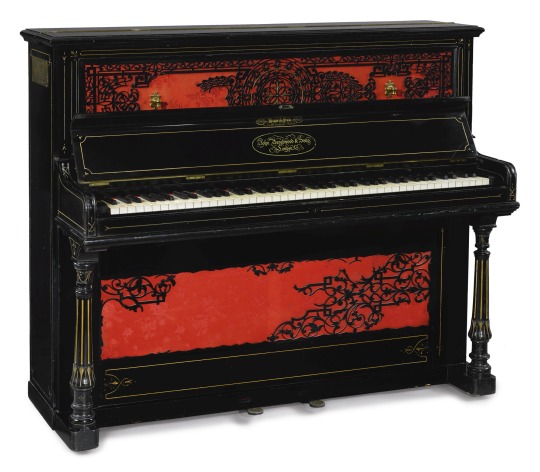
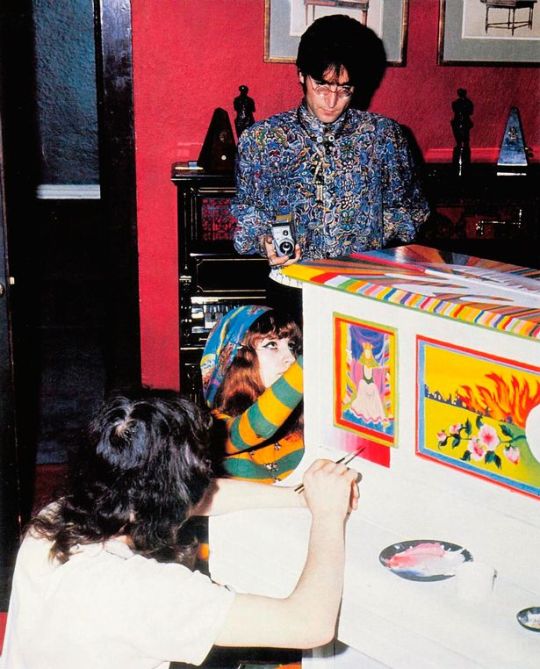
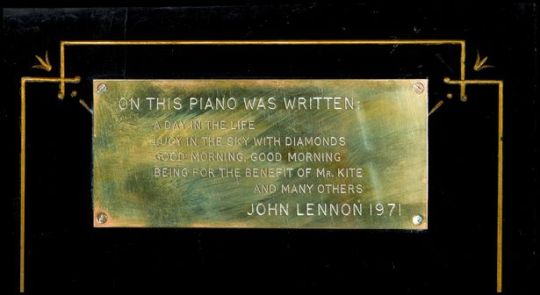
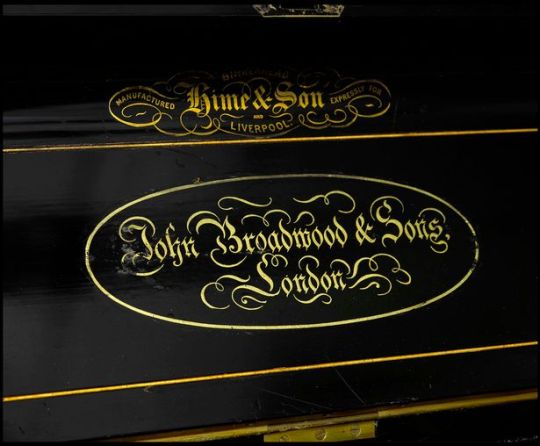
John’s “Sgt Pepper” piano, which is up for auction in New York on 10th Dec 2016.
This 150 year old piano (pictured behind John in the photo of The Fool painting one of his other pianos) was made by British piano makers, John Broadwood and Sons in 1872 (who also made pianos for Mozart, Haydn, Chopin, Beethoven and Liszt!) John bought it c.1966 (possibly earlier) and used it a lot in his studio at Kenwood.
Most famously, the 40 second E-major chord played at the end of A Day in the Life was played by John on this piano. (The chord was simultaneously played on separate pianos by John, Paul and Ringo).
After John and Cynthia split up, John took the piano with him to Tittenhurst Park. In 1971 he had the brass plaque added and gave the piano to a friend (something John seemed to do a bit).
The piano is estimated to sell for £1.45million.
99 notes
·
View notes
